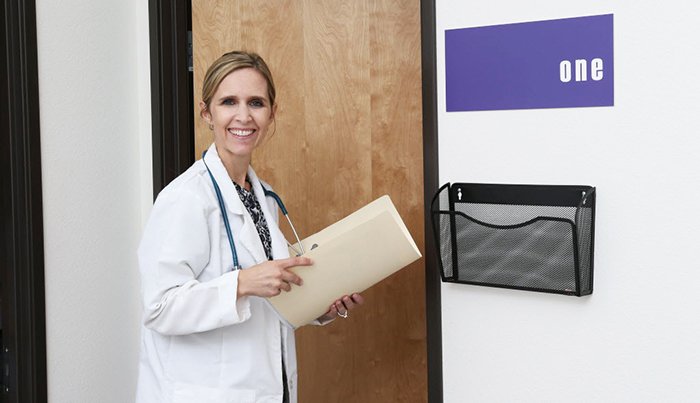
By Connie Colbert
Director, Canyon Health and Wellness Clinic
Why is sleep so important?
According to the National Institutes of Health (NIH), sleep makes your brain work properly.
Sleep supports your physical and emotional well-being.
While you sleep, your brain is forming new pathways to help you learn and remember information.
While we may be prone to cramming for an important exam or staying up late to finish a paper, studies have shown that getting a good night’s sleep can improve learning, outcomes and performance.
Not to mention, getting a good night’s sleep can help avoid injury, careless mistakes and poor decision-making.
Over time a lack of sleep can lead to a variety of chronic health problems, such as heart disease, diabetes, stroke and obesity.
One study of teenagers showed that with each hour of sleep lost, the odds of becoming obese went up.
Sleep helps you maintain a healthy balance of hunger hormones. The less you sleep, the more hungry you might become.
Sleep builds our immune system as well. Sleep deficiency can result in more colds, flu and infections.
The average adult needs 7-8 hours of sleep daily. If you are getting less on a routine basis, you could have a sleep deficit and will not function at optimal health.
Here are some tips on improving sleep:
- Go to bed and wake up at the same time every day – yes, even on weekends and days off.
- Sleep when you are sleepy: Avoid spending too much time in bed.
- If you haven’t been able to get to sleep after about 20 minutes or more, get up and do something calming or boring until you feel sleepy, then return to bed and try again. Sit quietly on the couch with the lights off (bright light will tell your brain that it is time to wake up), or read something boring like the phonebook. Avoid doing anything that is too stimulating or interesting – this will wake you up even more.
- Avoid caffeine and nicotine at least 4-6 hours before bedtime (this includes coffee, tea, chocolate and dark colas).
- Avoid alcohol 4-6 hours before bed. It actually affects the quality of sleep.
- If you need a nap, take a short one before 3 p.m. so you are tired for bed.
- Exercise regularly, but avoid rigorous exercise after 2 p.m. The endorphins can keep you up!
- Have a pre-bedtime routine, such as a warm bath or shower or quiet time of prayer/meditation.
If these are not effective and you are still experiencing difficulty sleeping, see a doctor or other medical provider to prevent health problems in the future.
For more information on sleep, see:





























